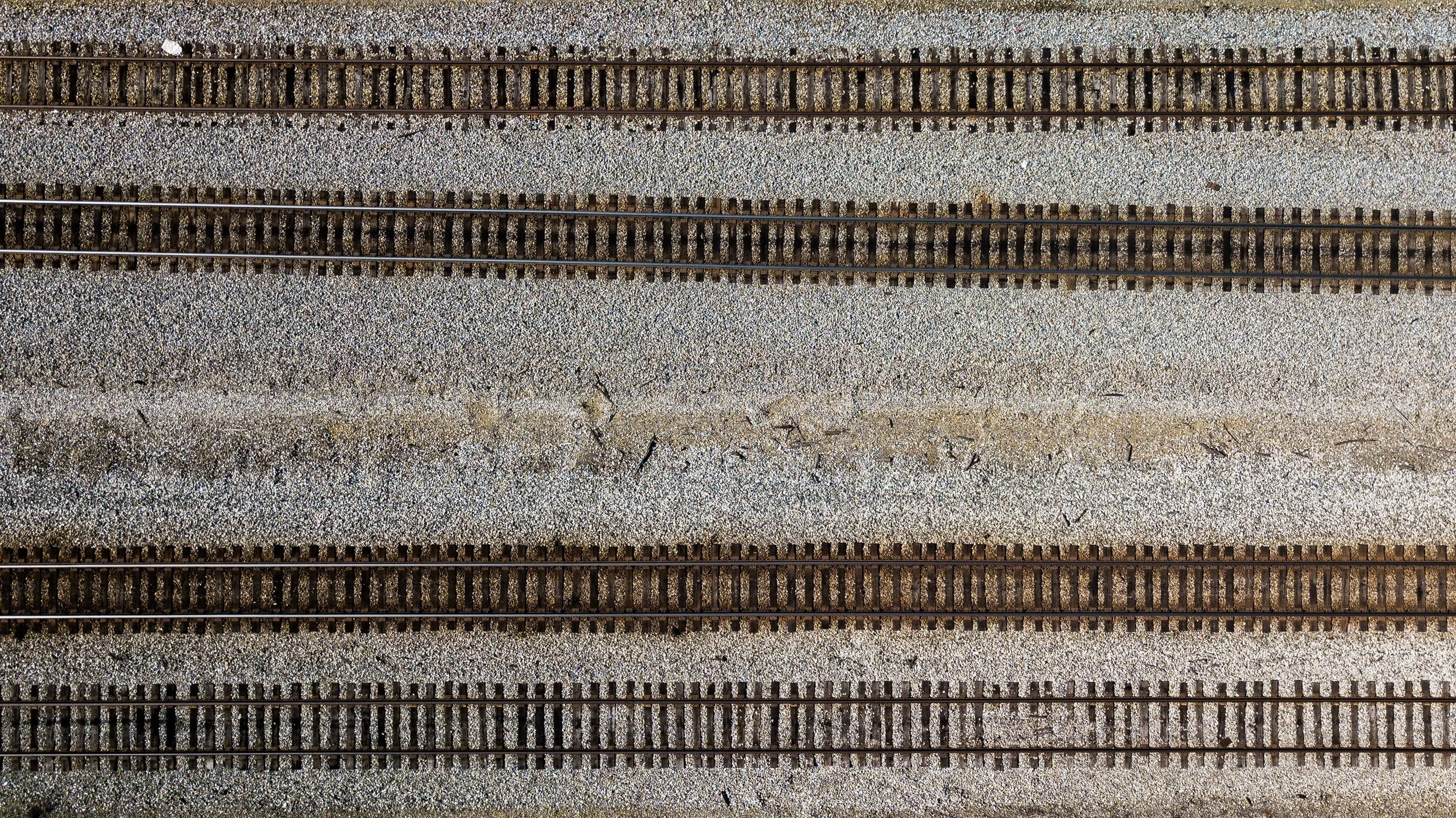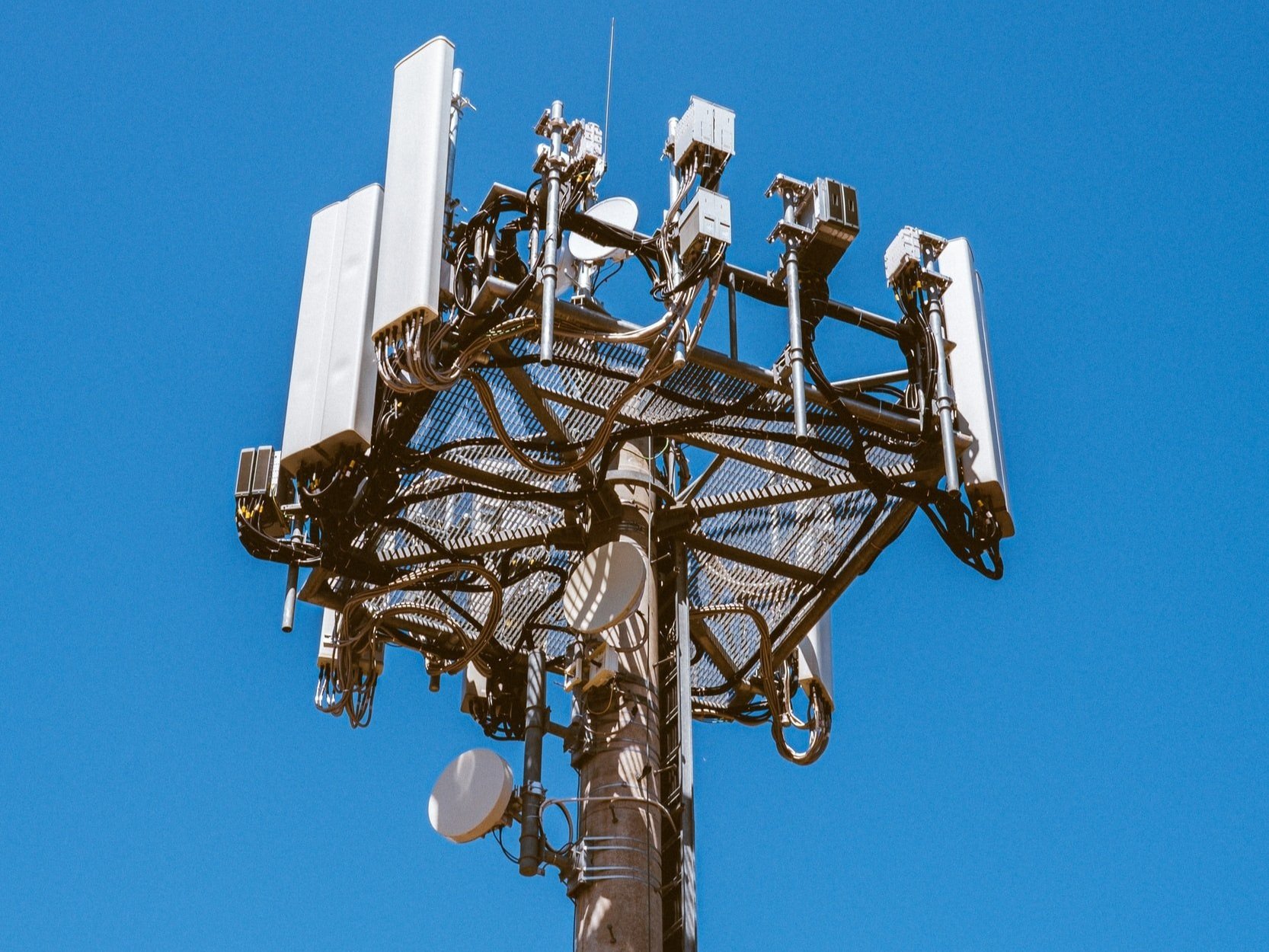Highly-trained inspectors are an integral part of maintaining our nation’s critical infrastructure. However, putting experienced inspectors at sites is often costly, time-consuming, and dangerous. Those constraints can even prevent them from making the best-informed decisions. Drone inspection services can allow them to bypass those obstacles saving time, money, and human lives.
In the past decade, drones have cemented their places in filmmaking, photography, and search and rescue, but with more advanced and accessible technology, they are becoming the leading tool for industries requiring visual inspections and maintenance of their assets like our nation’s critical infrastructure. Learn how ProAerial Media (PAM) helps businesses gather better data, make better decisions, and mitigate risk across a variety of dynamic industries.

Aerial Inspection Services by Industry
Residential + Commercial Roof Inspections
Roof inspectors aren't shy about getting on top of buildings, but it isn't always the best option.
Consider areas affected by natural disasters. Contractors and insurance inspectors will have dozens of heavily damaged homes to inspect in a short amount of time. A drone inspection allows them to safely survey more roofs in far less time. They won't be hindered by unsafe working conditions or large equipment.
It doesn't end with residential roofs. Many commercial buildings have sections of their roofs that are virtually inaccessible without heavy and costly equipment. A drone can not only access those areas safely, but capture footage that can be used for 3D renderings for future development projects.
A business might be reluctant to hire drone inspection services on the grounds that nothing beats the well-trained eye of an in-person inspector. Betterview, a market-leading building inspection data analysis firm, reports that Haag Engineering has performed case studies on drone roof inspections. They've found them to be up to 99.4% accurate.
Roadways + Bridge Infrastructure Inspections
Bridge and roadway inspections require a lot of coordination. To fully inspect bridges and overpasses, inspectors have to interrupt traffic or set up equipment around rivers and other deadly obstacles. This isn't only an inconvenience to commuters, but a huge risk to inspectors.
Visually inspecting the underside of an elevated roadway increases that risk and cost. The most common way inspectors check under bridges is by using a snooper truck — a heavy, complex, and expensive piece of machinery. Drone inspection services cut out the need for such equipment and potentially dangerous situations.
A study by the American Association of State Highway and Transportation Officials found that the average cost for a freeway bridge inspection is $4,600. Delays commonly increase that by $10,000. Drone inspection services cut costs down to $1,200. With reduced inspection times and costs, road maintenance departments can save thousands every year and spend more time actually making repairs.
Railroad Infrastructure Inspections
According to the Federal Railroad Administration, there are about 160,000 miles of track in the United States. Depending on their classification, some must be inspected once every calendar year. Doing that manually requires coordinating with freight companies and, like bridge inspections, may be delayed by traffic or inclement weather.
With an in-person railway inspection, all equipment must actually occupy the track, eliminating the possibility of inspectors inspecting side-by-side tracks at the same time. Fortunately, drone railway inspections bypass this issue.
An aerial drone captures high-resolution images of multiple tracks at once. Without actually having to occupy the track, inspections won't interrupt traffic at crossings or freight transportation schedules.
This also limits the risks inspectors are exposed to. While freight companies work diligently with inspectors, that's not always the case for the general public who may not see an inspection team at a crossing.
Communication Tower Inspections
Cell tower repair and inspection teams perform some of the most important and dangerous tasks. Their work keeps people and businesses connected. To do their jobs as efficiently and safely as possible, they need every tool available.
Our drones allow cell tower inspectors to choose the right tools before they make their dangerous ascent. A faulty communication tower can have a range of structural or electrical problems, so a repair crew must know what they're getting into to execute their duties safely. If they survey the tower with a drone first, they can spend less time at dangerous heights and avoid hazards such as iced ladder rungs and arcing electrical components.
After AT&T employed drones for tower inspections, they reported that workers spend up to 30% less time on towers — less time navigating potentially fatal hazards and more time actually making repairs. That's of course great news for tower climbers and their families, but also great news for businesses themselves.
By sending drones up for a preliminary inspection, communications companies could save on labor costs and insurance premiums. Skilled tower technicians will always be needed, but by employing drones, companies can keep their people safer and their profit margins wider.
Oil + Gas Pipeline Inspections
When gas pipelines become damaged and leak, speed, and efficiency are key. Inspectors and repair technicians have to get to problem areas quickly to reduce product losses and halt threats to the environment and population. By equipping inspection crew with UAVs, their leak detection speed increases as the drone can cover a larger area in a shorter amount of time than with actual boots on the ground.
The benefits of using drones for applications in the oil and gas industries don't end with emergency repairs. When choosing sites for new pipelines, wells, and rigs, a drone maps out the area, providing businesses with fast and accurate insights into the terrain.
Oil companies can also use drones to bolster their existing security systems. Instead of sending a crew out to check on issues, companies can use drones to evaluate them first then send out the appropriate crew with the right equipment.
With this improved speed and efficiency across all aspects of oil companies' operations, the multinational bank and executive service firm Barclays predicts that drones will save the oil industry $5 billion over a five-year period.
Industrial + Chemical Facility Inspections
According to the trade publication Chemical Processing, drones have saved chemical processing companies $500,000 on a single inspection. An initial investment in drone inspection services might seem daunting, but the savings pay for themselves in an often short amount of time when integrated across every stage of operations by ensuring compliance with all OSHA, IBC, and NFPA regulations.
In the building and surveying stage, drones quickly create aerial maps of potential chemical storage and processing sites. These maps can be used to compare terrain so time isn't wasted on unsuitable sites. When it comes time to build, companies use these aerial images to create renderings and assess potential obstacles.
In day-to-day operations, using drones for inspections provides quick, reliable data. Considering some hazardous material sites require multiple inspections per year, using a quick, lightweight drone saves teams from spending time traveling between sites.
When day-to-day operations turn into crisis management, drones can survey and enter dangerous areas before technicians put their lives at risk. Skilled technicians will always be necessary for handling complex chemical emergencies, but a preliminary drone inspection lets them assess the situation, choose the right equipment, and spend less time in dangerous situations.
Agriculture Inspections
With commercial crop fields covering millions of acres, gathering accurate data is often challenging and time-consuming. Conditions change rapidly, leading even the most diligent inspectors to miss the start of blights and other issues. With a drone, that data can be gathered and assessed quickly and up-close.
A trained drone pilot gives farmers week-by-week and hour-by-hour updates on their crops. With high-resolution imaging, drones monitor yields, weeds, fertilizer efficacy and alert farmers to potentially devastating conditions at the very start.
Estimates say that drones will save corn, wheat and soybean farmers $1.3 billion annually by helping them increase yields and reduce the need for inspectors to manually comb through fields.
Green Energy Infrastructure Inspections
Utility-scale solar farms cover hundreds of acres. The technology is sensitive and sometimes hazardous for inspectors to cover with handheld infrared devices, making proactive maintenance an expensive, labor-intensive, and sometimes dangerous task.
A small unmanned aircraft (or sUAV) can turn a days-long task into an afternoon project. Outfitted with IR capabilities, a drone creates an image that inspectors can analyze more closely and efficiently. Their data will be organized and more easily visually inspected.
When wind energy companies use drones for inspections, they reduce the need for sending crews into hazardous conditions. Like communications towers, wind turbines, feeder poles, substations, and collector lines are often difficult to maintain. Because it takes so long to send out crews to assess and make repairs, downtime, and safety become serious issues.
That's fortunately not true with wind turbine drone inspection services. A drone can complete an accurate turbine inspection in as little as 15 minutes. That not only saves businesses thousands but ensures that repair crews will only have to scale a turbine in the event of a malfunction.
Why You Should Implement Drone Inspection Services
With legislators introducing new drone infrastructure inspection grants, now's the time to consider professional drone inspection services. As an FAA-approved commercial drone services provider, ProAerial Media, based in Las Vegas, Nevada, offers services to civil and structural engineers in the public and private sector, and business owners across a wide range of industries.
From the nation's roads to its largest farms and power providers, ProAerial Media stands to make the country's critical infrastructure safer, and save taxpayers and businesses millions of dollars through our drone inspection services. Contact us today for a quote on our infrastructure drone inspection services.
ProAerial Media provides aerial drone services for a wide array of industries as well as special events and cinematography services. Subscribe to our YouTube Channel to see our video work, and our Instagram feed to view our photography (@proaerialmedia). If you’re ready to fly, you can always book a flight from the ProAerial Media Website.
Thanks for reading. Take Flight. Take Pics. Get Clicks.









